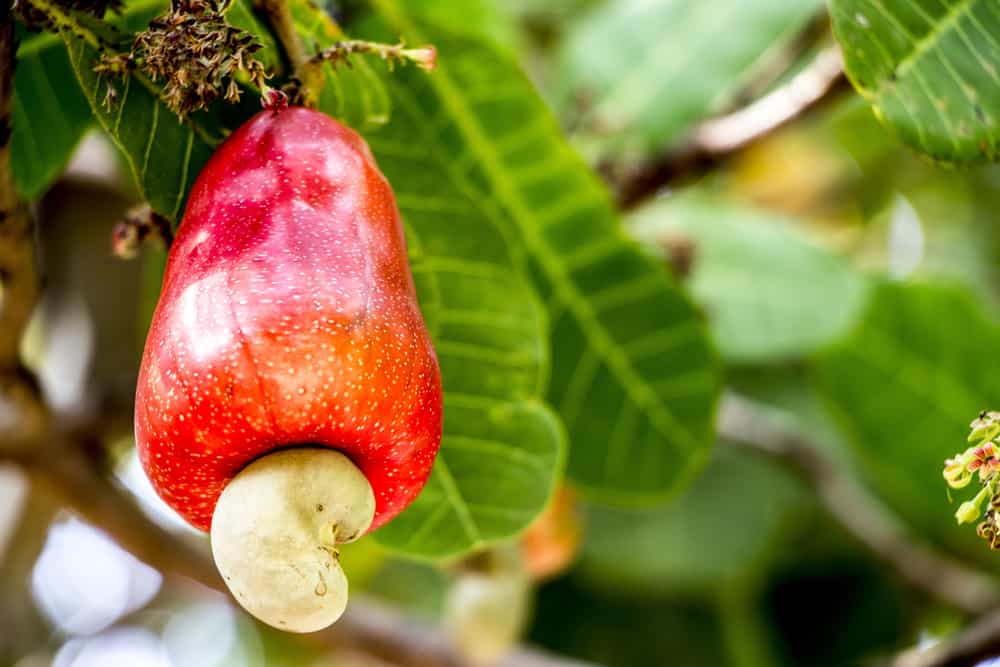
Buying organic has become very popular in recent years as consumers have become more and more aware of the chemicals and pesticides used in the production of food. These chemicals can soak into the food, affecting its size, shape, color, and taste. They can also then be transferred to people when eaten. This is quite concerning, especially when foods are grown using high amounts of chemical fertilizer.
Organic foods are grown without the use of any artificial chemicals. The foods are much more natural in that they are the color, shape, size, and taste they would be had they grown without any human interference or interaction. Do raw cashews need to come from organic farms? Let’s take a look at what qualifies as organic cashews and whether or not you need to look for the organic seal.
In addition to growing cashews without the use of any chemical, organic cashews must also follow specific government guidelines. These guidelines prohibit the use of chemicals, pesticides, sewage sludge, and ionizing radiation. All of these items have the potential to be hazardous to humans. In addition to prohibiting these substances, the cashew trees themselves may not be genetically modified organisms or GMOs.
What this means is that the cashews must be as natural and as organic as possible through every stage of their life. This begins when the cashew tree is a seed. It must be cultivated using purely organic methods. Farmers have to be very careful that they don’t introduce any synthetic chemicals to the trees, even by accident. If they do, the tree is considered contaminated, and any cashews that come from it cannot be certified organic, even if they were only exposed to an unacceptable substance once.
With some vigilance, it’s not difficult to ensure that no prohibited substances are used on a cashew tree. However, it can be challenging to prevent genetically modified cashew nuts from getting into an organic orchard, especially if there are many cashew farms close together. The cashew trees are known for spreading quickly without any help from humans. This means birds can take a nut from a genetically modified cashew tree, drop it in a field of organic cashews, and ruin entire batches of nuts.
Some people say they can taste the difference between organic foods and non-organic. Others say they can’t. Is there really a difference? Are organic cashews really better? As far as the nutrients found in the nuts themselves, no. Both organic and non-organic cashews have the same amounts of vitamin K, vitamin E, magnesium, copper, iron, and other vitamins and minerals. What does change is the fact that there are no foreign chemicals in the cashews. Because of this, it’s easy to see why people prefer raw organic cashews over those treated with harmful chemicals.
Another difference between organic and non-organic cashews is that organic cashew farms are usually smaller. The farmers who own and work on these farms are more aware of their trees and invest more in nurturing them. They carefully ensure that the trees are getting only completely natural and organic nutrients. Every stage of processing cashews is carefully monitored to guarantee that the cashews you put in your mouth are completely safe and natural.
Any cashews that were grown following the guidelines for organic produce qualify to be marked with the organic certified seal on the packaging. If you plan on buying organic, all you have to do is look for that seal.
Here at Beyond the Nut, we guarantee that all our cashews are organic and were produced by fair trade farmers in West Africa. We offer a range of great tasting cashews, and all orders ship free to the continental US.
Fuel Your Beyond with the Latest Discounts, Promotions, and Product Announcements
Free shipping on all U.S. orders over $25! Dismiss